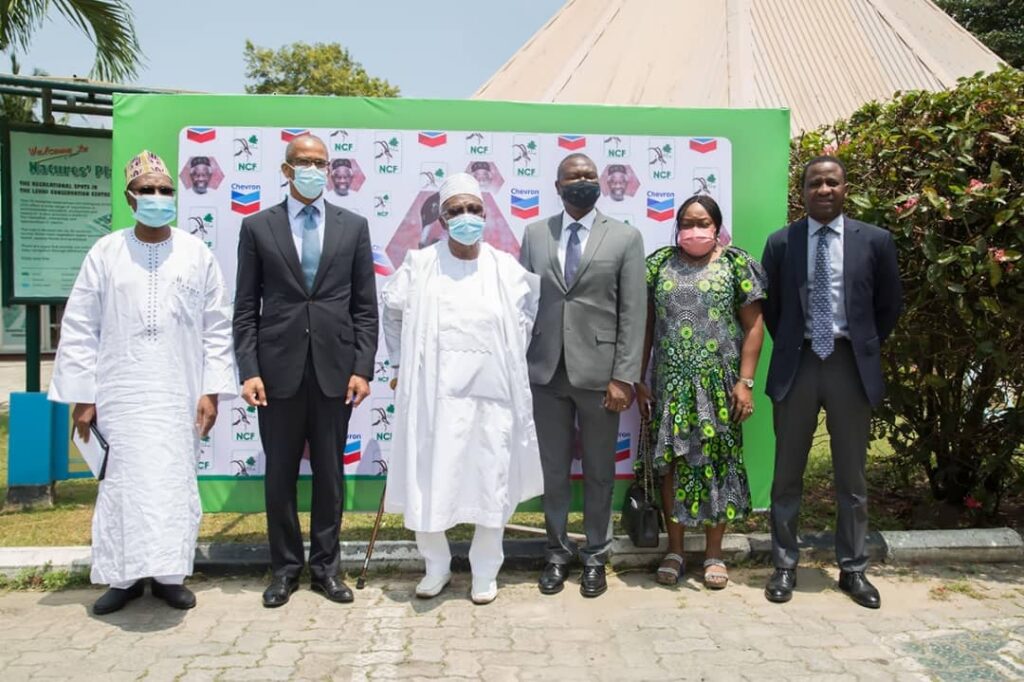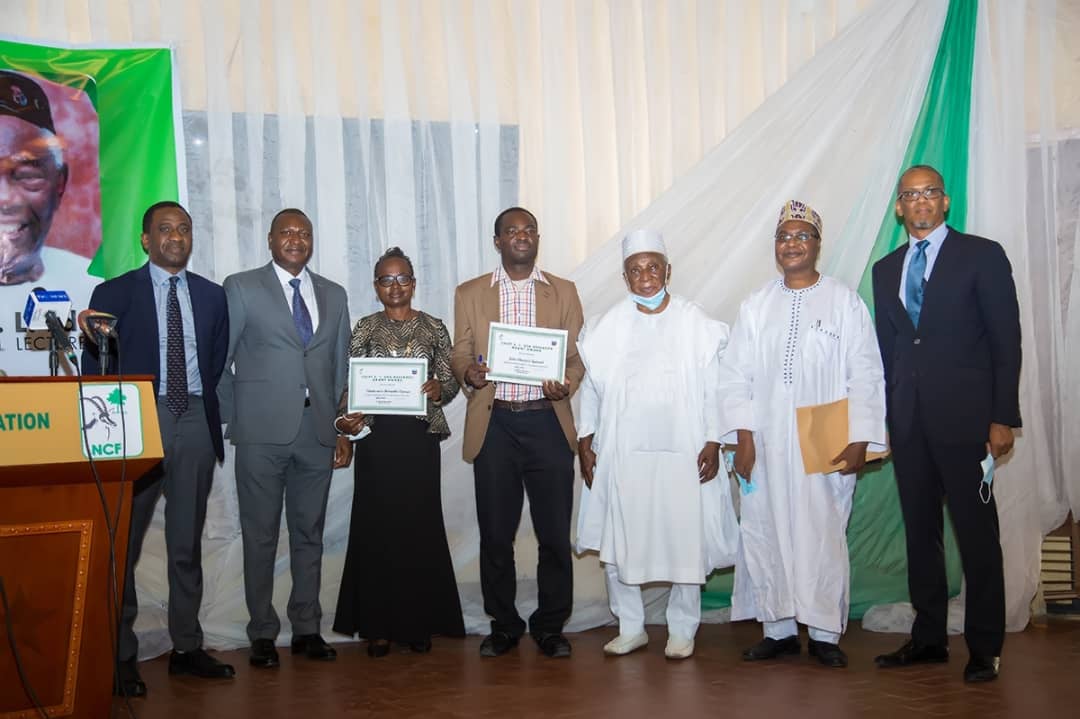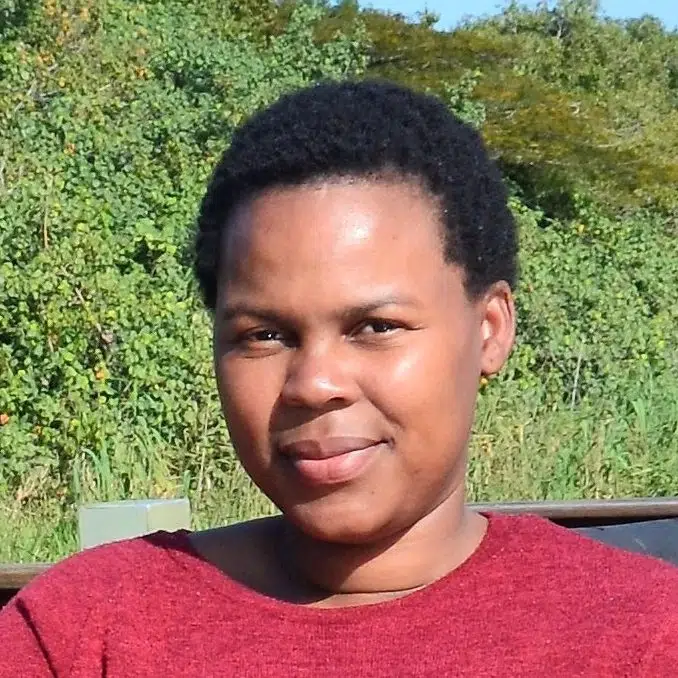African conservationist leaders advocate ecosystem restoration, call on youths to save the planet

From Nairobi, Abuja, Lagos, Calabar, and elsewhere, African conservationist leaders participating in the 19th Chief S.L Edu Memorial Lecture joined the Nigerian Conservation Foundation (NCF – BirdLife Partner) on 12th August 2021 to advocate for ecosystem restoration, challenging Nigerian youths to help save the planet.
The event, hosted by NCF under the theme ‘Youth and Ecosystem Restoration’, was held at the Lekki Conservation Centre in Lagos and streamed on Zoom, Instagram, YouTube and Facebook to mobilise Nigerian Youths to rise and champion courses that can promote ecosystem restoration.
The guest speaker, Ms. Simangele Msweli, Senior Manager of the African Wildlife Foundation’s Youth Leadership Programme, led other youth conservationists including Ms. Omobola Eko, Mr. Abubakar Muhammad and Ms. Nella Duke Ekpeyong to add credence to this discussion.
In her presentation, Ms. Msweli stated that the world’s ecosystems are in urgent need of restoration after being degraded for so long. She identified poor implementation of good policies and strategic action programmes in African countries owing to bad leadership, corruption and non-youth integration.
“Youth commitment, coupled with effective youth engagement from government organisations, will bring us closer to a world where ecosystems are reserved and therefore providing livelihood, climate resilience, and sustainable economy, ” she further noted.
Earlier in his opening remarks, Chief Philip Asiodu, President of the Board of Trustees for NCF (who also doubles up as the Chairman at the Memorial Lecture), observed that the area of forest reserves in Nigeria had depleted significantly from 35% to 3%, thereby denying animals their natural habitat which could possibly bring harm to the human environment.
“It is a great concern that when we look at our environment today, especially people who have been around before independence, one will be moved to tears at the level of degradation, loss of wetlands, desertification and fast disappearing forest,” he said, urging immediate action to halt and reverse the biodiversity loss.
In the same vein, Chief Ede Dafinone, Chairman of the National Executive Council of NCF, noted that this theme was very important, as humanity seemed to have severed our relationship with our ecosystems and with the earth.
By Oladapo Soneye
Conservation leaders gather at the 19th Chief S.L. Edu Memorial Lecture held on August 12, 2021 at Lekki Conservation Centre, Lagos © NCF
Youth commitment coupled with effective youth engagement, from government organisations, will bring us closer to a world where ecosystems are reserved and therefore providing livelihood, climate resilience, and sustainable economyMs. Simangele Msweli, Senior Manager, Youth Leadership Programme, African Wildlife Foundation

Underlining that plundering and polluting nature’s resources and treating the earth as a dumping ground for plastic and other waste had harmed the planet, in addition to projections that the planet could lose one million species in the next few decades, Dafinone called for urgent action.
“There are some actions we can take, starting from today, individually and collectively to recreate our relationship with the planet and restore our ecosystem,” he added.
During the event, Director General of NCF, Dr. Muhtari Aminu-Kano, made a clarion call to African youth to take the driver’s seat in this global decade-long project of ecosystem restoration from 2021-2030. According to him: “The youths have the energy, technical savviness and the information at their disposal to make a meaningful contribution to environmental restoration.”
Meanwhile, Mr. Esimaje Brikinn, General Manager of Policy, Government and Public Affairs for Chevron Nigeria Limited, revealed that his organisation was transparently committed to advancing a lower carbon future, one that meets the global needs of all people, through affordable and reliable and ever cleaner energy, working towards achieving a more prosperous and sustainable world.
He commended the giant strides of NCF and other stakeholders and urged everyone to make a personal commitment to preserve the environment which is more threatened now than ever before.
While sharing her impact statement on ecosystem restoration, a youth conservationist, Ms. Omobola Eko, said:
“Tree planting is one of the cheapest solutions to climate change. This can be achieved by planting the right trees, at the right place, at the right time, and in the right quantity. Efforts should be made to plant trees that are indigenous to the environment to achieve effective ecosystem restoration.”
Others who featured at the event included Mr. Abubakar Muhammad, a youth conservationist, Ms. Kafayat Quadri, a Nigerian lawyer, singer, songwriter, poet and music producer, and a 12-year old boy, Rereloluwa Oketola, who made a ‘spoken word’ presentation on ecosystem restoration.
The event equally served as a platform to award scholarship grants to two PhD students whose research works are in the field of environmental sciences in any Nigerian academic institution. The grant, sponsored by Chevron Nigeria Limited, seeks to promote research works in nature conservation, biodiversity preservation, environmental management and sustainable livelihoods.
This year’s edition was won by Mrs. Ibironke Olubamise and Mr. Samuel Jatto. Olubamise is a PhD student at the Postgraduate School of the Nigerian Defence Academy in Kaduna. She is pursuing a programme in Environmental Management with a research project entitled: ‘Assessing the Effectiveness of Community Initiatives for Environmental Restoration and Policy Development in Nigeria’.
Meanwhile, Jatto, a PhD student at The Postgraduate College of the University of Ibadan is pursuing a programme in Forest Management with a research project entitled ‘Forest structure, Woody species diversity and basis for Joint forest management in Omo-Shasha-Oluwa Forest Complex Nigeria.’
Stay up to date
Sign up to receive the latest bird conservation news. You’ll also receive updates about our projects, science and other ways to get involved including fundraising.
Thank you for your support, we are committed to protecting your personal information and privacy. For more information on how we use your data, please see our Privacy Policy. You can unsubscribe from emails at any time by using the link in the footer of any email from us.


